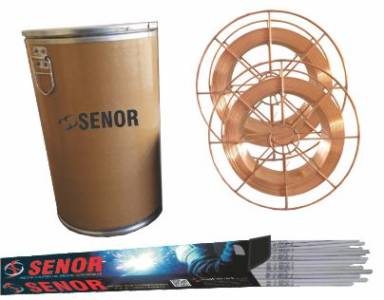Description
Copper Alloys: Superior Performance for Diverse Applications
Copper alloys, renowned for their exceptional properties, offer a diverse range of solutions for various industries. These materials combine the inherent advantages of copper – excellent electrical and thermal conductivity, ductility, and corrosion resistance – with enhanced characteristics achieved through alloying with other elements like zinc, tin, nickel, aluminum, and silicon. This results in a family of materials boasting unique combinations of strength, hardness, machinability, and resistance to specific environmental factors.
Key Features & Benefits:
- Exceptional Electrical Conductivity: Many copper alloys retain high electrical conductivity, making them ideal for electrical wiring, connectors, and other electrical components. Specific alloys are chosen depending on the application's required conductivity and other performance criteria.
- Excellent Thermal Conductivity: Similar to their electrical conductivity, copper alloys demonstrate superior heat transfer capabilities. This property is crucial for heat exchangers, radiators, and other thermal management applications.
- Superior Corrosion Resistance: Copper's inherent resistance to corrosion is further enhanced in certain alloys, offering extended lifespan and reduced maintenance in harsh environments. Specific alloy choices are tailored to resist specific corrosive agents, from seawater to industrial chemicals.
- Enhanced Strength and Hardness: Alloying increases the strength and hardness of copper, resulting in materials capable of withstanding significant stress and wear. This makes them suitable for structural components, bearings, and other demanding applications.
- Improved Machinability: Certain copper alloys are engineered for superior machinability, simplifying manufacturing processes and reducing production costs. This is achieved through careful control of alloy composition and microstructure.
- Wide Range of Applications: The versatility of copper alloys extends across numerous industries, including:
- Electrical & Electronics: Wiring, connectors, busbars, circuit boards
- Automotive: Radiators, heat exchangers, electrical components, bearings
- Plumbing & HVAC: Pipes, fittings, valves
- Marine: Hull components, piping systems, heat exchangers
- Industrial Machinery: Bearings, gears, shafts
- Construction: Roofing, cladding
Types of Copper Alloys:
The specific properties of a copper alloy are determined by its composition. Some common examples include:
- Brass (Copper-Zinc): Known for its strength, ductility, and corrosion resistance. Variations in zinc content yield different properties, from highly malleable to strong and hard.
- Bronze (Copper-Tin): Offers excellent corrosion resistance, particularly in marine environments. Various tin percentages lead to different mechanical properties and applications. Other elements such as aluminum, silicon, and manganese may be added to further enhance its properties.
- Nickel Silver (Copper-Nickel-Zinc): Characterized by its bright, silver-like appearance and excellent corrosion resistance. Often used for decorative purposes and in tableware.
- Copper-Aluminum Alloys: Possess high strength and excellent corrosion resistance, making them suitable for high-stress applications.
- Copper-Silicon Alloys: Exhibit high strength and good casting properties, ideal for various industrial components.
Choosing the Right Copper Alloy:
Selecting the appropriate copper alloy requires careful consideration of the specific application requirements. Factors such as conductivity, strength, corrosion resistance, machinability, and cost must be evaluated to ensure optimal performance and longevity. Consult with a materials specialist to determine the best alloy for your needs.
Conclusion:
Copper alloys represent a family of high-performance materials offering a diverse range of properties and applications. Their superior conductivity, corrosion resistance, and strength make them essential components in a wide array of industries. By carefully selecting the appropriate alloy, engineers and designers can leverage the unique advantages of these materials to create innovative and reliable products.
